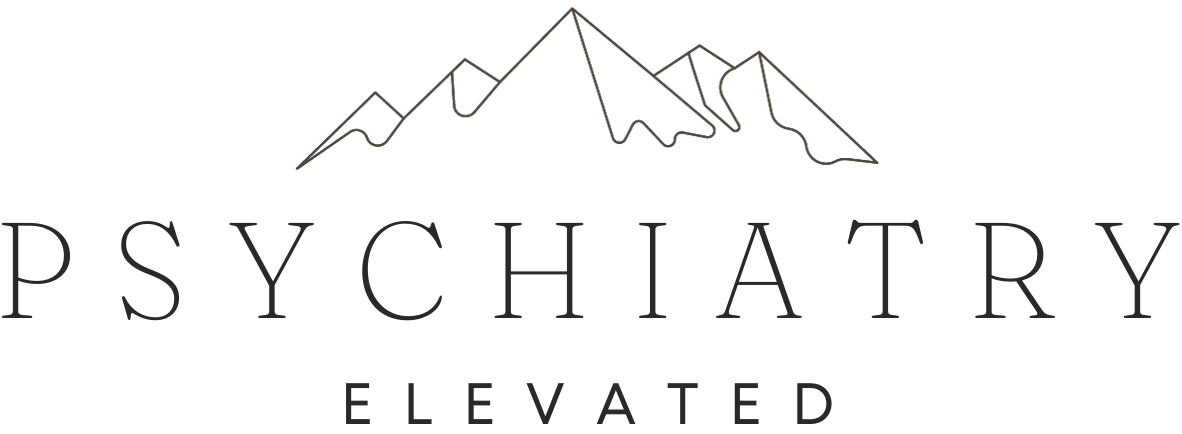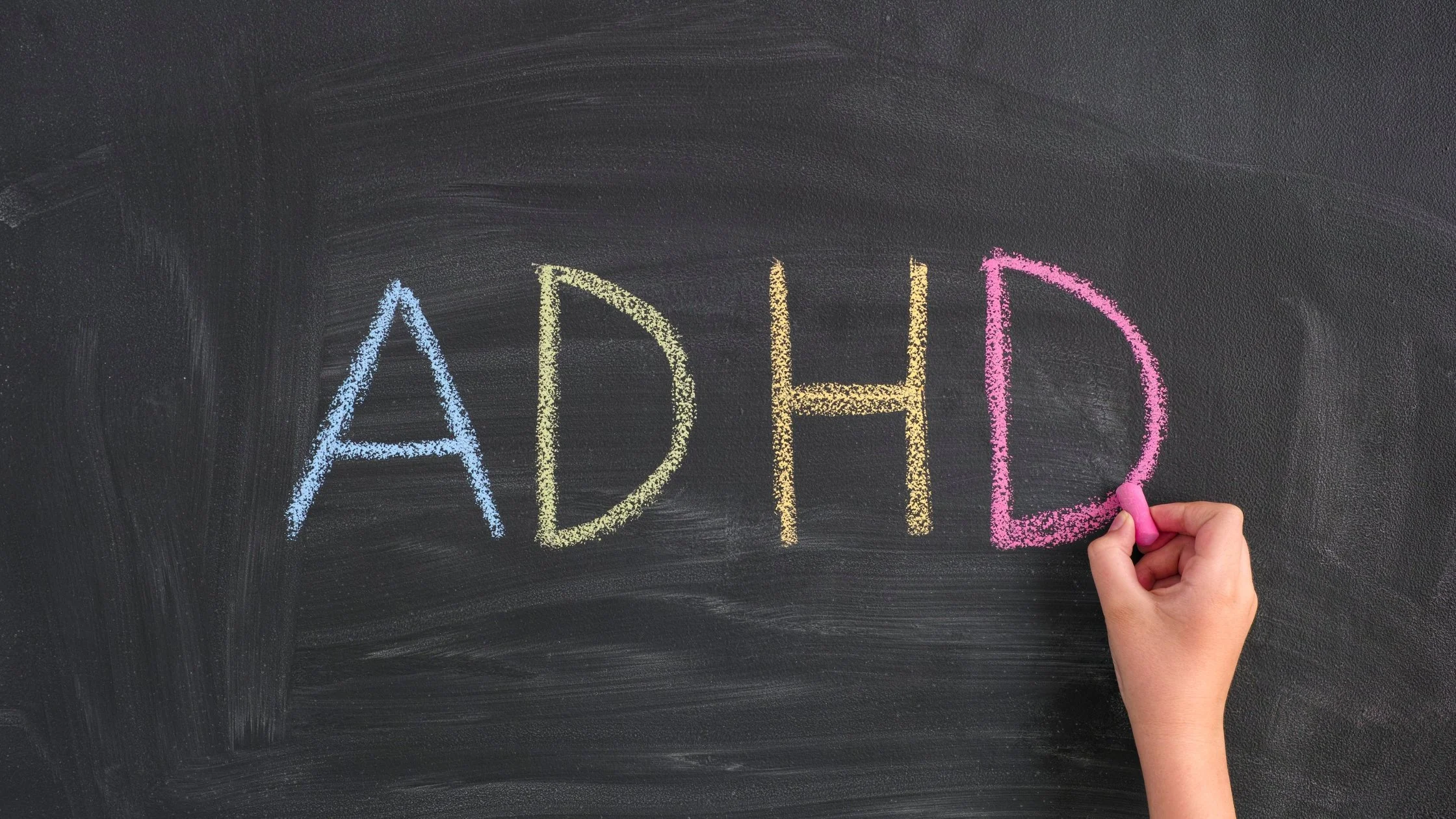How to Manage ADHD Without Medication: Strategies That Actually Support Your Brain
ADHD can feel like you're moving in 12 directions at once—and not finishing any of them. It's the mental tabs that never close, the forgotten appointments, the emotional rollercoaster, and the constant sense of falling short no matter how hard you try.
For many women, ADHD goes unrecognized for years. What’s often dismissed as “flakiness,” “moodiness,” or “laziness” is actually a neurological condition. And once the diagnosis finally comes, another big question usually follows:
Do I have to take medication to feel better?
The short answer is: not necessarily.
At Psychiatry Elevated, we believe in building a plan that works with your body, your values, and your life. While medication can be a powerful tool for some, it’s not the only path to clarity, focus, and emotional stability.
If you're looking for guidance on how to manage ADHD without medication, you're in the right place.
Start With Understanding Your ADHD
Managing ADHD starts with understanding how it uniquely shows up in you. ADHD is not just about distractibility—it also involves executive function challenges, emotional dysregulation, and difficulty with time awareness.
For women, it often appears as:
Constant overwhelm, even with small tasks
Forgetting appointments or misplacing important items
Trouble starting and finishing projects
Emotional hypersensitivity or mood swings
Difficulty following conversations or instructions
Mental fatigue from masking symptoms all day
At Psychiatry Elevated, we take time to explore the full picture—because your brain deserves more than surface-level support.
1. Build a Nervous System-Friendly Routine
ADHD is as much a nervous system condition as it is a cognitive one. If your body is always in fight-or-flight mode, your brain is going to struggle to organize, focus, or regulate emotions.
Here’s how to begin calming your system from the ground up:
Start your day with regulation, not stimulation. Skip the phone scroll and try stretching, deep breathing, or stepping outside.
Prioritize sleep. ADHD brains are often night owls—but lack of sleep magnifies symptoms. Build a wind-down routine that’s screen-free, consistent, and calming.
Hydrate and eat protein in the morning. Blood sugar crashes worsen inattention and irritability. Stable fuel matters.
These basics aren’t glamorous, but they create a foundation your brain can rely on.
2. Use Time-Management Tools That Work With ADHD
Traditional planners and schedules don’t always work for neurodivergent brains. That doesn’t mean structure is impossible—it just means you need tools that support your natural wiring.
Some ideas to try:
Visual timers or countdown apps (like Time Timer or Pomofocus)
Color-coded digital calendars for different types of tasks
Body-doubling (working alongside someone else to stay on track)
Checklists with no more than 3–5 items per day
Alarms for transitions, not just task starts
If one strategy doesn’t stick, that’s not a failure—it’s feedback. Try another. ADHD management is a process of experimentation, not perfection.
3. Understand the Role of Hormones
Hormonal fluctuations have a huge impact on ADHD symptoms. Estrogen, for example, helps regulate dopamine—a neurotransmitter directly involved in attention and motivation. That means ADHD can feel worse:
Before your period (when estrogen drops)
After giving birth
During perimenopause or menopause
If you’ve ever said, “I used to be able to handle more—what happened to me?” hormones may be part of the answer.
At Psychiatry Elevated, we help women explore the link between their cycle and their symptoms. In some cases, functional lab testing or hormone-balancing strategies (nutritional, herbal, or lifestyle-based) may provide powerful relief.
4. Get Curious About Nutrition and Supplements
There’s no magic ADHD diet—but the way you nourish your body absolutely affects brain function.
Here are some general guidelines that may help:
Balance your blood sugar. This means pairing carbs with protein or fat, avoiding long stretches without food, and reducing ultra-processed snacks.
Omega-3s matter. These healthy fats support brain function and reduce inflammation. Found in flax, chia seeds, walnuts, and fatty fish—or available in supplement form.
Magnesium and zinc may support emotional regulation and calm overstimulation. These minerals are often low in people with ADHD.
Limit caffeine if it worsens your anxiety or leads to crashes later in the day.
Before starting any supplements, it’s helpful to consult with a provider who understands both ADHD and functional health. We can help guide safe, personalized choices.
5. Practice Self-Compassion Over Self-Criticism
So much of ADHD management is emotional—not just logistical. The hardest part isn’t always the to-do list; it’s the voice in your head that says, “Why can’t I just get it together?”
You’ve likely spent years masking your symptoms, blaming yourself for forgetfulness, or wondering why “simple” tasks feel so hard.
That narrative has to shift if healing is going to happen.
Compassion is a skill. And like any other ADHD tool, it gets easier with use. Therapy can help untangle shame from your story and replace it with understanding, clarity, and grace.
You are not lazy. You are not broken. You are navigating a brain that was never built for our current world—and you’re doing your best.
6. Incorporate ADHD Coaching or Strategy Support
Managing ADHD without medication doesn’t mean managing it alone.
Working with a coach or therapist who understands executive function challenges can help you develop strategies tailored to your life. That might include:
Setting realistic expectations
Planning in cycles, not linear time
Creating external accountability
Developing scripts for boundary-setting
Reframing productivity to include rest
At Psychiatry Elevated, we provide ADHD coaching and integrative support for women navigating ADHD across all stages of life. It’s not about “fixing” your brain. It’s about learning how to work with it, not against it.
7. Rebuild Your Relationship With Focus
Focus isn’t a moral issue. You’re not more valuable when you’re productive and less valuable when you’re distracted. But so many women with ADHD carry deep guilt about how their attention works—or doesn’t.
Instead of forcing yourself into focus through shame or burnout, begin to explore when you feel most clear. Are there certain environments, times of day, or types of tasks that bring out your best attention?
This is called building a “focus profile,” and it’s different for everyone. When you know your ideal conditions, you can start designing your day around them. That might mean:
Saving complex tasks for mid-morning when you’re most alert
Using music or white noise to block background distractions
Working in short bursts with movement breaks
Adjusting lighting, posture, or screen settings to reduce sensory stress
The more curious you get about your patterns, the more options you create for yourself.
ADHD Without Medication Isn’t About Willpower—It’s About Support
Some women thrive with medication. Others prefer to avoid it. Many fall somewhere in between. What matters most is that your plan is built for you—with space for change, experimentation, and real-life considerations.
At Psychiatry Elevated, we’re here to help you develop sustainable, medication-free tools that support your focus, clarity, and emotional well-being. Whether you're newly diagnosed or simply looking for more effective strategies, you're not alone.
Your ADHD doesn’t have to define you—but understanding it can empower you in ways you never imagined.


